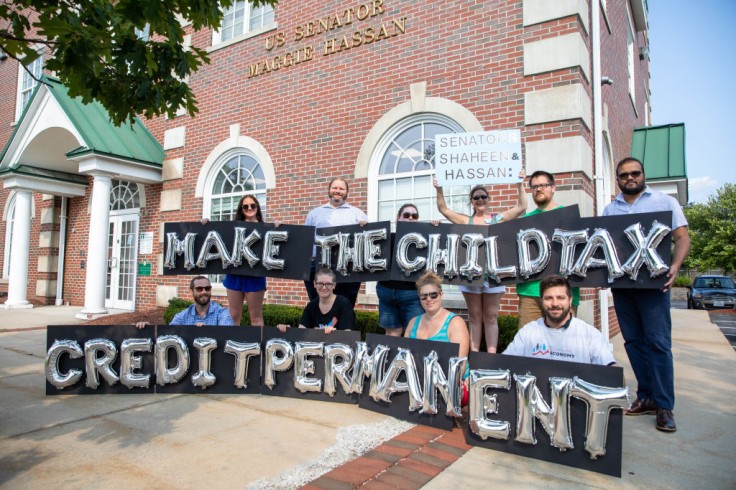
Nearly six months after the expiration of the expanded Child Tax Credit (CTC) at the end of December 2021, families continue to hope for the re-implementation of a similar anti-poverty scheme under Pres. Joe Biden's Build Back Better program. But as lawmakers reached an impasse on their decision over Biden's proposal, ten states in America have continued to distribute the cash boost for parents.
The expanded Child Tax Credit was originally part of the American Rescue Plan approved during the COVID-19 pandemic, where parents received between $3,000 to $3,600 per child. Half of the credits were rolled out as monthly checks from July to December 2021, while the rest was given as a lumpsum credit during the recent tax season.
By 2022, CTC is reverting to its pre-pandemic arrangement, with parents getting up to $2,000 per child when they file for their income tax by April 2023. There is no monthly credit under this program, thus prompting ten states to develop their own scheme and help families amid the rising cost of basic goods.
Vermont Latest to Adopt Own Child Tax Credit Program
At the end of May 2022, Gov. Phil Scott signed Vermont's latest Child Tax Credit program that will provide $1,000 per child under five years old. This will be eligible for parents who make less than $125,000 a year.
Per H.510 (Act 138) of the Vermont Child Tax Credit, $32 million will be disbursed to 30,000 children in low-income households. This program was modeled after the federal scheme.
California was one of the first states to sign a state law on Child Tax Credit. The one-time payment scheme of $1,000 will go to families with children under six years old whose parents are earning between $25,000 to $30,000 a year.
New York also followed suit with its Empire State Child Tax Credit. According to the state's Department of Taxation and Finance, the claim will be computed based on the higher amount between "33% of the portion of the federal child tax credit and federal additional child tax credit" or $100 multiplied by the number of children in the family under four years old.
Oklahoma will distribute five percent of the federal CTC to taxpayers with a combined income that does not exceed $100,000. New Mexico will give $75 to $175 per qualifying child, which will be computed based on the parents' income.
Massachusetts will provide $180 for one dependent and $360 for more than two dependents under 12 years old, over 65 years old, or family members with disability. Maryland will disburse $500 per child under 17 years old for parents with less than $6,000 income.
Maine's child tax credit is similar to the federal program, with $300 for each qualifying child. Idaho will give $205 per child, while Colorado will start its CTC distribution by January 2023 with five to 30 percent of the federal credit. This will also depend on the parents' income tax filing.
Some CTC Non-Refundable
Of these ten states, Idaho, Maine, and Oklahoma are not offering a non-refundable child tax credit scheme. The rest of the states will fully refund the benefit, which could offset their tax liabilities to $0.
The parents will need to file their income tax returns in the next tax season to receive the fully refundable benefits for this year. New Mexico's program, however, will be ongoing until 2031.
Josh McCabe, a senior family economic security analyst, told Fortune that these state-initiated CTC are "life preservers" for struggling families.
"It's not [explicitly] an antipoverty program, but it has a huge antipoverty effect," McCabe said.